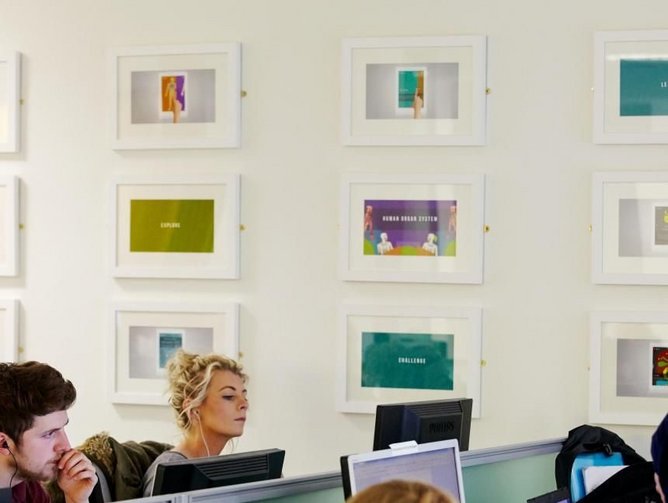The world of technology can be challenging to traverse, and even more so in an environment like higher education. At Sheffield Hallam, technology is seen as an essential utility, like gas, electricity, or water; the University's mission to transform lives depends on this technology utility being uninterrupted. With zero appetite for disruption in technology services, how does the University meet the need for potentially disruptive change against the fluctuating needs of 31,000 students and 4,000 staff? This is a question Leon Etherington, CIO at Sheffield Hallam University, has worked to address.
Technology is ever-evolving, and students expect to attend university using the very latest developments; this year, some students begin their academic careers by accepting a place offered by the university via Facebook. But the breadth of underpinning technology services in any university is huge: “There are some 700 academic courses taught here, with each course has its own technology demands. These range from standard AV equipped classroom, to a tech-enabled Art School, to advanced games development labs and industry-leading tech in health, sport and science schools.
“We need to roll out hundreds of teaching and learning software packages across thousands of machines every year, used in around 400 classrooms, covering two campuses with two Libraries. So in terms of the challenge, it’s about making sure that everything works every day for everyone.”
This requires absolute consistency, regardless of how other industries may operate.
“People claim digital disruption is amazing and it’s what you need to do, but if I disrupted 31,000 students and 4,000 staff, I’d become very unpopular very quickly,” Etherington states with a laugh. “Often the message from the industry is that we need a revolution in technology; that might be the case in certain scenarios, but it’s got to feel like an evolution to the consumer. Students and staff rightly expect high standards in the kit and in the services they use, and all of this requires a Technology Department which can manage services professionally and rapidly. ”
To further complicate the issue of seamless technological evolution, the deployment of technology change has to fit around the rhythms of the academic year. Changes can’t occur during clearing or enrolment, they can’t disrupt graduation, and they can't happen during term time or processes such as the end of the financial year. Etherington and his 180-strong team have focussed on deploying change rapidly and with minimum disruption to the business, thinking of recruitment in almost retail terms. Etherington says: "No retailer would make a change to its systems in December risking its Christmas sales. Why would we risk the experience of our students during recruitment or exams?"
To make the entire process of IT management run more smoothly, Etherington's team introduced a 'Service Improvement Programme' which is being rolled out across the Department and University. This 'professionalisation' of Service Management focuses on meeting the University's diverse needs in repeatable, achievable and economic ways.
“What we found was that we were trying to be everything to everyone,” says Etherington. “As such we were finding it almost impossible to standardise our provision and proceduralise our support of that provision. In any business you grow organically, but we knew we had to partner with the wider University to agree a sustainable technology provision. The alternative would mean technology costs quickly becoming unsustainable and worse, that the performance of the whole technology stack would begin to fail.
“Therefore, we set out this programme to achieve service management best practice, to meet customer needs in a very transparent way so that they – the student or member of staff – know where to get help via a standard set of channels.”
Etherington notes that this is a long road and there is a need to demonstrate quick wins. Furthermore, the focus on service professionalism is complemented by a wider Technology Strategy which will improve the overarching Technology stack used by the University.
This wider work picks up major themes such as Cloud, Cyber Security, Data integration and sourcing, but the emphasis is always on the people and the customer, not the technology. For Etherington, success in delivering technology change is nothing without people," the technology is easy, but unless you have vital partnerships across the business and a close and collegial relationship with staff and students, the technology – no matter how good it is – will fail."
The 'people first' approach has also led to Etherington avoiding silver bullet technology solutions. He recognises that change is complex, requiring a mix of innovative yet sustainable and stable solutions used by a workforce that acts as partners; this technology development led to the creation of a continually improving consistent and secure technology architecture.
Sheffield Hallam transforms lives via its teaching and research and it has to look closely at what its students need in order for them to succeed. “We always try to make sure we’re hitting that mark,” explains Etherington. “We’re very much focussed on the student experience. Our student satisfaction ratings have gone up but we can't be complacent. If students aren’t happy, we’ll know very quickly that we’re doing something wrong, and we have to respond and fix what's wrong to build upon what's right.”
The IT Department maintains a strong relationship with the student union and with professionals in Finance, in Estates and in the Strategic Projects teams in order to listen closely to what customers want from it, creating a sense of partnership for deploying large scale improvements seamlessly.
“If you notice the technology, something’s wrong – it should just be there,” says Etherington. “That’s a very difficult thing."
Sheffield Hallam is delivering transformational change, with projects including the deployment of Windows 10, Office 365, Azure Cloud solutions and co-located Data Centres, not to mention major improvements to student records, Finance, Wi-Fi and virtual learning environments. In this activity-rich environment, IT and its partners across the University are achieving great things, and there have been huge successes.
“We’ve got major suppliers, which include people like Microsoft, Blackboard, Crimson Consultants and PROACT, and we're saying to them, you’re a partner in this, you’ve got to help us succeed, and they're stepping up to the plate."
By using the right suppliers, the right solutions and by focussing on the people, Sheffield Hallam can deliver transformational change seamlessly: "If email is down it’s seen as a business critical issue, and technology now is seen as being as vital and as basic a requirement as water or electricity. The whole business mission at the University is about transforming lives, so it’s important to make sure we have the right tools to do that.”
Another of the ways in which Sheffield Hallam is transforming its technology provision is in its hybrid approach to resilience. Recognising that the dual data centre approach to resilience isn't always the most effective approach, the University is now delivering a Cloud, on premise and co-location approach. With resilience, as with security or as with application provision, there is no single solution to the University's needs. "With technology trends, it’s often about extremes,” Etherington explains. “What you’ve actually got to do is be balanced about your strategy and look at it in the long-term.”
As such, Sheffield Hallam is using Azure for its cloud platform supported by an on premise data centre, and this resilience will be supported by a secondary data centre 40 miles away in Leeds which will be managed 24/7. While this approach creates network challenges, it is important for the University that it uses a range of resources to meet the challenges it faces.
“Like many businesses we are focussing on surrounding ourselves with the best solution providers,” says Etherington. “We cannot do everything ourselves anymore, we have to be experts at supplying a general IT service and have partners who are domain experts in things like Cloud or Data Centre provision. I think we’re getting the balance right. Our ethos is 100% availability of service; even when we shut down one data centre and moved it to a new state-of-the-art facility, there was zero disruption. Nobody noticed. We focus on this kind of professionalism.”
A challenge for businesses, no matter the sector, is finding and retaining skilled IT staff and developing high performing teams who can deliver consistently in challenging environments. Sheffield Hallam needs the best people to meet the demands of transformation. For Etherington, the key to these challenges is being authentic with staff, engendering a belief in a common purpose and focusing on people and customer service.
The difficulty of this balance is in communicating with everybody and making sure they maintain faith in the vision. Sheffield Hallam has gone from undertaking a discrete number of projects a year to implementing a diverse and challenging portfolio of programmes and projects, which are only set to increase.
“We can’t increase the size of our workforce with every piece of work we do, so we have to work differently,” explains Etherington. “We have to seek solutions, phase work, prioritise it, seek not to gold plate work but be realistic where we can. Also, to engage with partners who we can trust so that we can deliver on multiple fronts whilst protecting the essential day to day of University life."
Interpersonal relationships between his staff and University partners is something Etherington has a large stake in, so he also concentrates on testing out the emotional intelligence of people before he hires them to ensure strong partnerships. “We really value not just the tech expertise, but also that balance of being able to work with people and to deal with challenges under difficult circumstances. They’re the traits we focus on.
“If you apply reasonable service management and implement a balanced technology stack, underpinned by a commitment for excellence across everything you do, you’re going to be able to enable the growth of the University, and that’s a privilege.”
Sheffield Hallam University is doing things right. Student satisfaction with the University is improving and the University's students, its partners and its research are changing the region and the world in real ways. There is a focus on service that transcends the IT team to permeate the entire University. To quote Professor Chris Husbands, Vice-Chancellor, in the opening letter of the University’s new Strategy, it is “an innovative, imaginative University unafraid to take risks to make a difference.”







